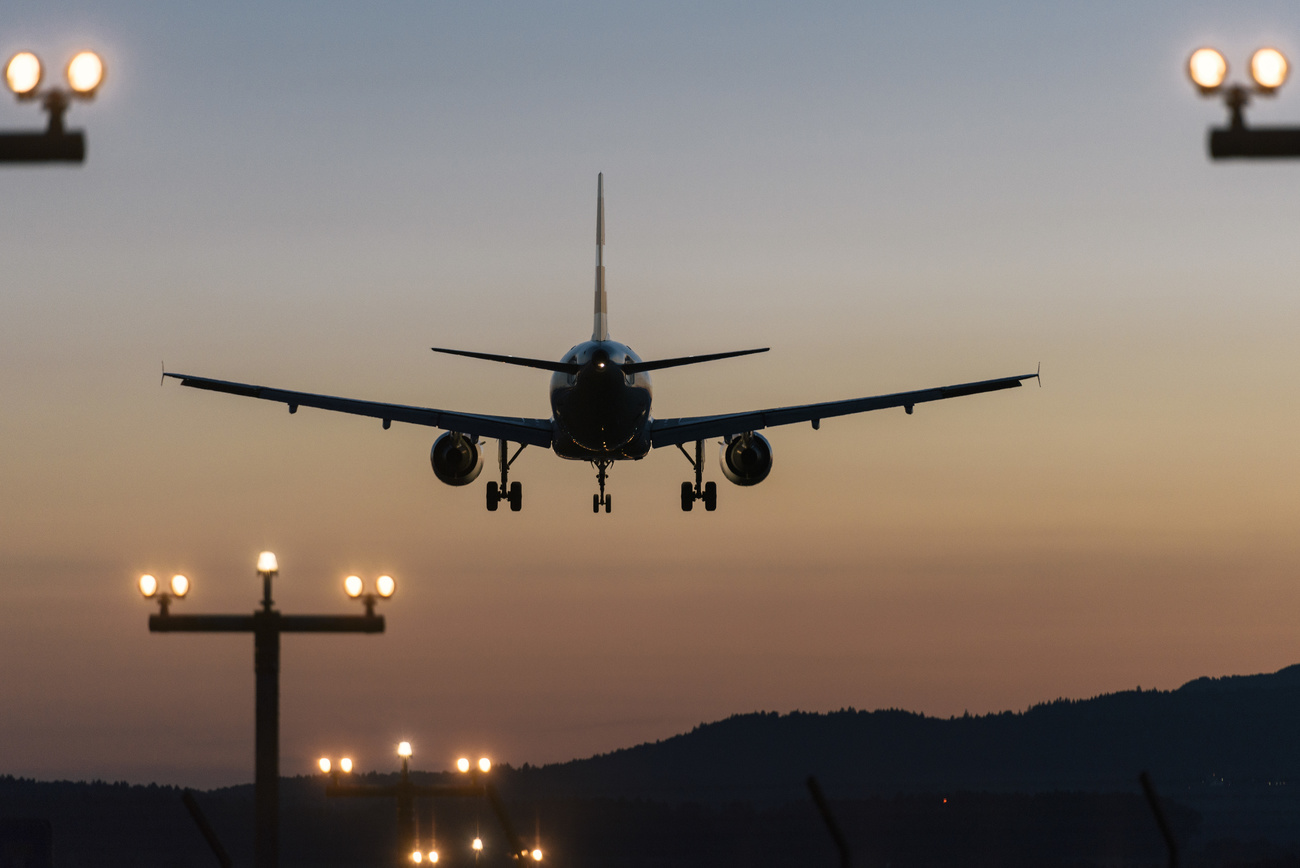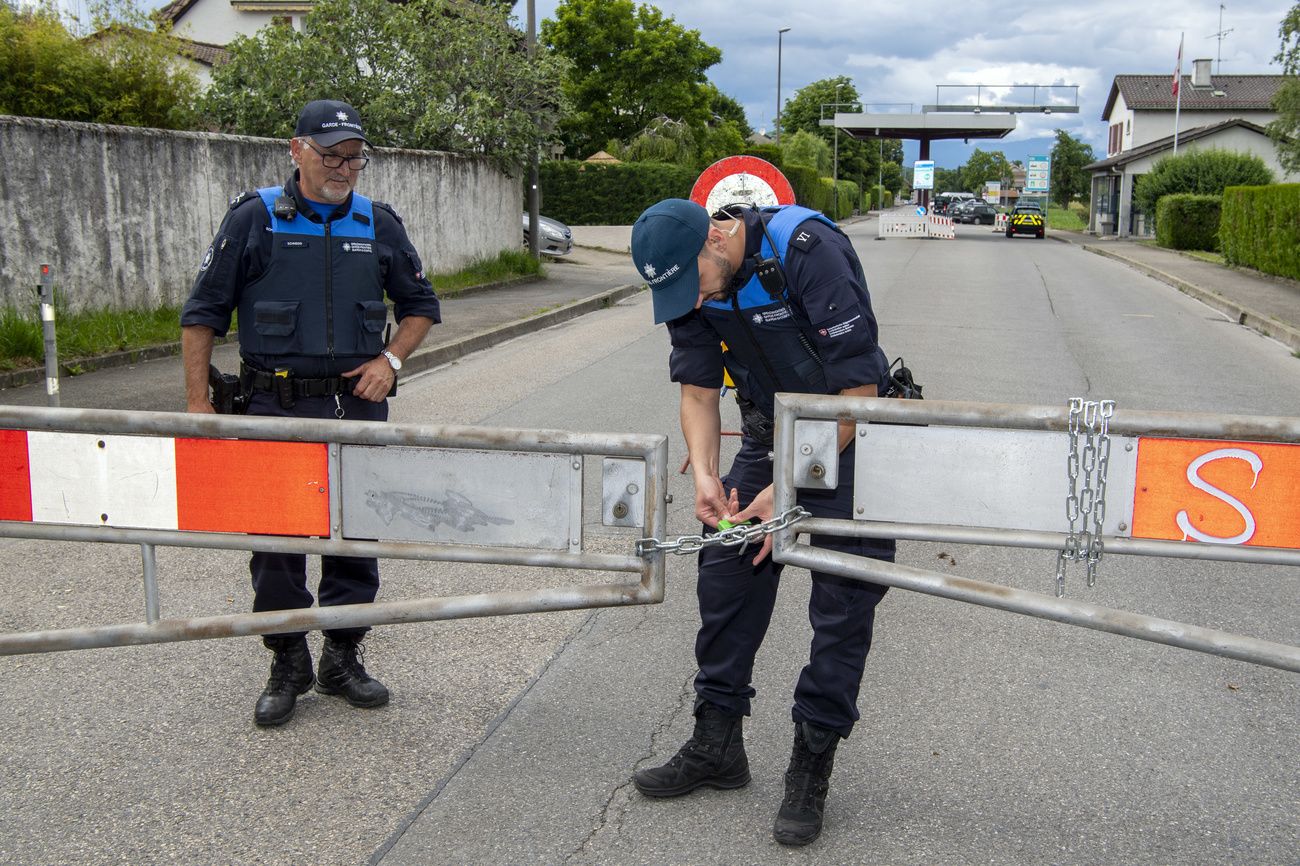Switzerland publishes list of ‘high risk’ travel quarantine countries

The United States, Russia, Saudi Arabia and Brazil are among 29 countries listed as posing a high risk of coronavirus infection by the Swiss authorities. From July 6, travellers entering Switzerland from these countries must go into quarantine for ten days.
The Federal Office of Public Health published the listExternal link on Thursday as part of new measures taken by the Swiss authorities to prevent a second wave of the pandemic.
After flattening the peak in March, infection rates have been creeping up over the past two weeks, sometimes rising to above 100 on certain days.
The authorities fear that the rise in infections may in part be explained by people arriving from abroad or Swiss people travelling to high risk countries and bringing the virus back when they return.
Serbia and Kosovo are also included on the list because large populations of migrants from these countries have settled in Switzerland and regularly return to visit relatives.
The full list,External link in alphabetical order, is: Argentina, Armenia, Azerbaijan, Bahrain, Belarus, Bolivia, Brazil, Cape Verde, Chile, Colombia, the Dominican Republic, Honduras, Iraq, Israel, Kosovo, Kuwait, Moldova, North Macedonia, Oman, Panama, Peru, Qatar, Russia, Saudi Arabia, Serbia, South Africa, Sweden, the Turks and Caicos Islands and the United States.
The list of high risk countries will be continuously updated by the health authorities.
Visitors who have spent time in the named countries in the previous 14 days must notify the Swiss authorities immediately on arrival and then go into quarantine for 10 days, the government said. According to Swiss public radio, SRF, under Swiss law anyone who breaks the quarantine regulations could be liable to a heavy fine of up to CHF10,000.
Travellers affected will be notified during the flight, on board coaches and at border crossings. People arriving into Switzerland from these countries are required to report to the cantonal authorities after entry. Airline and coach companies are instructed not to transport sick passengers. Full information about entering Switzerland and quarantine rules can be found hereExternal link (French and German).

More
Coronavirus: the situation in Switzerland
Borders
On March 25 the Swiss government imposed strict entry restrictions at its borders and airports due to the spread of the coronavirus. These are being progressively eased and adapted.
After improvement to the coronavirus situation, on June 15, the government allowed travel between Switzerland and all European Schengen states as well as Iceland, Norway, Liechtenstein and the United Kingdom. Switzerland is not a member of the European Union but is in the 26-nation Schengen area which normally has no frontier checks. Unrestricted travel has been allowed between Switzerland and all the other Schengen members, apart from Sweden which appears on the government list.
On July 20, travelers from the following countries, deemed as “safe”, will be able to enter Switzerland: Algeria, Australia, Canada, Georgia, Japan, Morocco, Montenegro, New Zealand, South Korea, Rwanda, Thailand, Tunisia and Uruguay. At the same time, EU states not belonging to the Schengen area (Bulgaria, Croatia, Cyprus, Ireland and Romania), whose citizens have been allowed to enter Switzerland since June 15, 2020, will also be removed from the list of countries as risk. China will also be added to the safe list in accordance with EU recommendations, provided that reciprocity is guaranteed to Swiss residents, the government said.
Links to further sources on travelling to and staying in Switzerland
Unfortunately, we cannot research and answer individual questions. Please check the following official federal websites for the most accurate and up to date information.
Infoline for people travelling to Switzerland: +41 58 464 44 88 (6am–23pm)
The State Secretariat for MigrationExternal link: updated information on the situation at the Swiss borders, with a helpline to answer questions about refusal of entry into Switzerland and the exceptions.
The Swiss foreign ministryExternal link: information in French, German and Italian about the situation regarding foreign travel and the steps to be followed by Swiss citizens going abroad
The Federal Office for Public Health (FOPH)External link: live updates of the national situation, as well as recommendations, public safety measures, and details of upcoming announcements.
Follow SWI swissinfo.ch here, on FacebookExternal link, and on TwitterExternal link for timely updates on the situation in Switzerland.
An earlier version of this article incorrectly referred to citizens rather than travellers from “safe” countries. This has now been corrected. A clarification has also been made regarding Bulgaria, Croatia, Cyprus, Ireland and Romania.

In compliance with the JTI standards
More: SWI swissinfo.ch certified by the Journalism Trust Initiative




















You can find an overview of ongoing debates with our journalists here . Please join us!
If you want to start a conversation about a topic raised in this article or want to report factual errors, email us at english@swissinfo.ch.